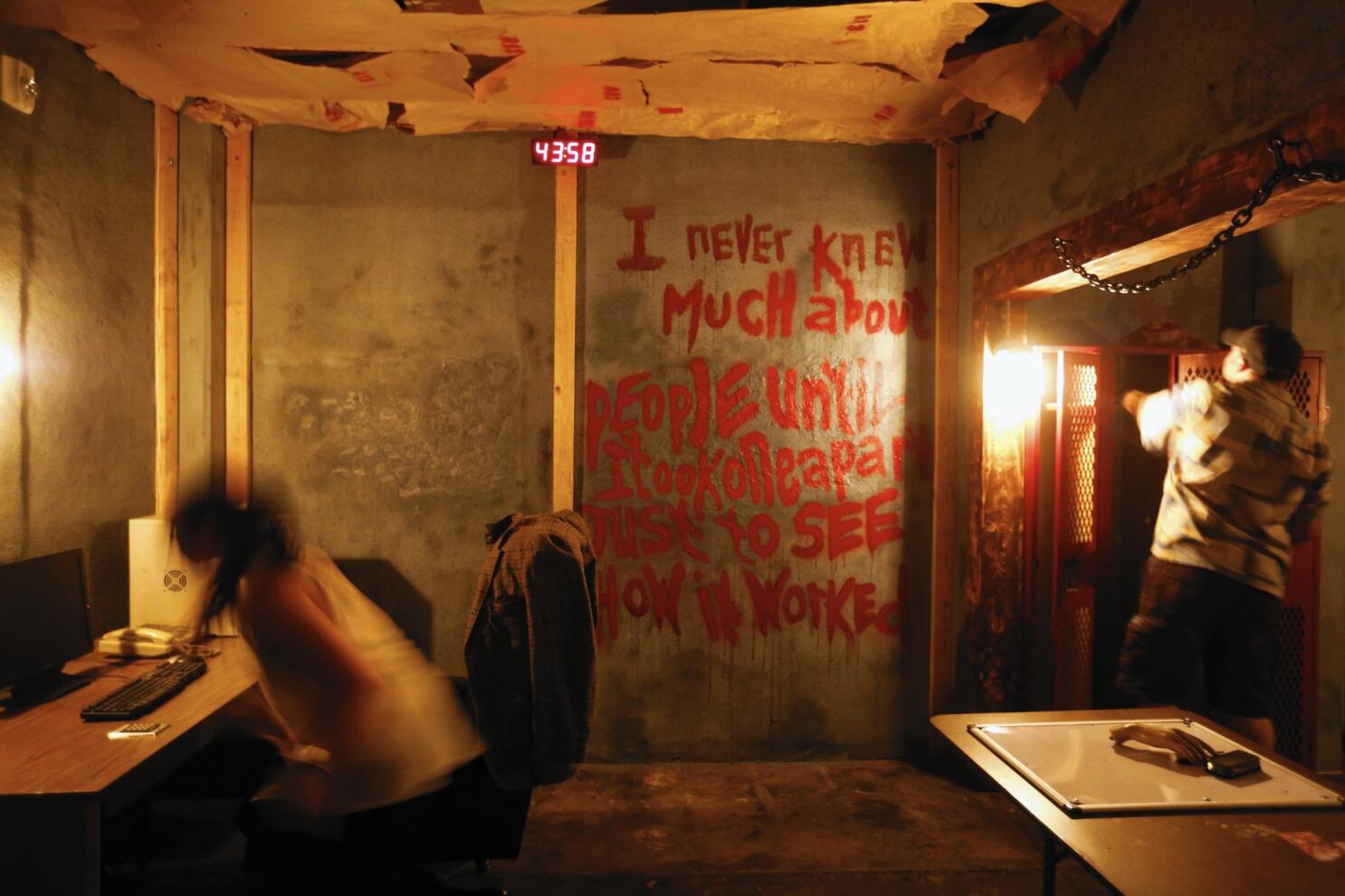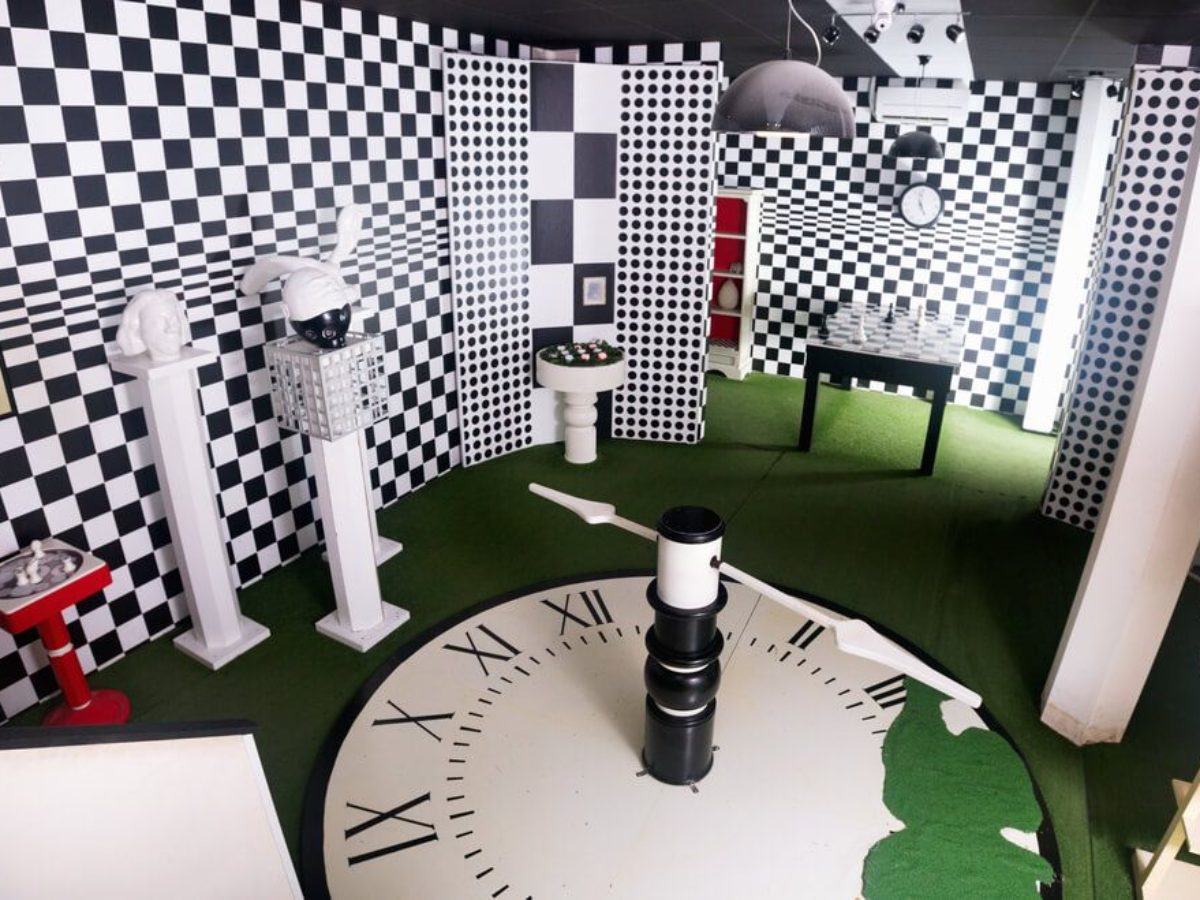Group Methods: Just How to Team up Successfully in an Escape Room
Navigating the complexities of a getaway room demands greater than simple interest; it needs a well-coordinated technique based in clear communication, calculated duty projects, and experienced time monitoring. Groups have to proactively listen per participant's understandings, assign roles that straighten with individual staminas, and preserve regular check-ins to make certain emphasis and prevent redundancy. By cultivating an environment that values cohesion and versatility, teams can substantially increase their performance and success prices. The nuances of these strategies can change the experience, however exactly how precisely can they be applied to make the most of the possibility for success?
Establish Clear Interaction

To help with clear interaction, it is important to assign a central factor of contact for details circulation. This role entails summarizing searchings for and proposed approaches to guarantee everyone stays on the exact same page. In addition, taking on a systematic strategy to discussions can prevent chaotic exchanges. Short, focused updates from each group member can maintain the group informed without overwhelming them with info - best escape room.

Designate Duties Strategically
While clear interaction establishes the foundation for efficient teamwork, designating duties tactically ensures that each staff member's strengths are made use of effectively. In an escape area scenario, the time-sensitive and complex nature of difficulties necessitates a well-organized technique to task delegation. By determining and leveraging individual competencies, groups can enhance their analytic capabilities and improve overall efficiency.
Someone with a keen eye for detail may excel in locating surprise objects, while a logical thinker might be much better suited to addressing puzzles. This duty frequently requires strong business and social abilities.
Second, make sure that functions are flexible and versatile. As brand-new difficulties arise, the team should have the ability to pivot, reapportioning tasks as required. This versatility helps maintain energy and avoids traffic jams that can take place due to inflexible function assignments.
Ultimately, a calculated method to function job not just makes best use of the toughness of each staff member yet additionally fosters a natural setting, driving the group towards a successful retreat.
Utilize Diverse Skills
Recognizing and taking advantage of the varied abilities within your group can dramatically raise your performance in a getaway space. Each staff member brings one-of-a-kind toughness to the table, and properly leveraging these abilities can expedite problem-solving and improve overall performance. A group participant with solid analytical skills may succeed at decoding complicated codes or patterns, while another with keen observational capabilities might promptly identify surprise hints that others may neglect.
Motivate group members to articulate their understandings and ideas quickly, guaranteeing that all prospective options are taken into consideration. In addition, designating jobs that line up with each member's toughness can stop bottlenecks and make certain that progress is continual.
In addition, diversity in skills often converts to diversity in assuming designs, which is vital in an escape space setup. While some difficulties might require sensible reasoning and precision, others may gain from creative and side thinking. By recognizing and leveraging this diversity, groups can deal with a wider variety of obstacles better, thereby boosting their opportunities you can try these out of an effective retreat.
Manage Time Properly

First, allot first mins for a fast study of the space. Recognize noticeable puzzles and divide jobs based upon staff member' staminas, guaranteeing that no one is still. Set internal time checkpoints to assess progress occasionally; as an example, purpose to have half the problems fixed by the mid-point of the game. This technique can assist keep the team focused and avoid time from escaping undetected.
Additionally, stay clear of one-track mind. If a problem is taking as well long, rotate staff member or carry on to another difficulty, returning later on with fresh viewpoints. Communication is paramount-- keep every person updated on resolved problems and continuing to be jobs More Info to stay clear of redundant initiatives.
Finally, use any kind of hints or ideas sparingly yet purposefully - best escape room. Recognizing when to request help can save valuable time. By sticking to these time monitoring principles, teams can substantially enhance their possibilities of a successful and enjoyable escape room experience
Debrief and Mirror
Representation is an important element of group advancement and enhancement in the context of getaway areas. When the difficulty is finished, whether effectively or not, it is critical for the group to participate in a structured debriefing session. This process allows staff member to analyze Get More Information their efficiency, determine strengths, and pinpoint locations for renovation.
Start the debrief by discussing what worked out. Highlight particular circumstances of reliable interaction, analytical, and partnership. Recognizing these favorable behaviors strengthens them and motivates their repeating in future obstacles.
Following, address the challenges came across. Go over minutes of complication, miscommunication, or inefficient approaches. Motivate an open and constructive dialogue where employee can share their perspectives without anxiety of criticism. This cultivates a society of continual enhancement and learning.
Conclusion
To conclude, effective cooperation in a retreat area is asserted upon clear communication, critical duty tasks, the reliable application of diverse skills, and skilled time monitoring. Regular check-ins and structured debriefings are essential for preserving emphasis and fostering constant improvement. By developing a cohesive and flexible group atmosphere, the probability of effectively addressing challenges and attaining the objective of running away the room is dramatically improved. This approach not just makes sure success yet also promotes collective growth and discovering.